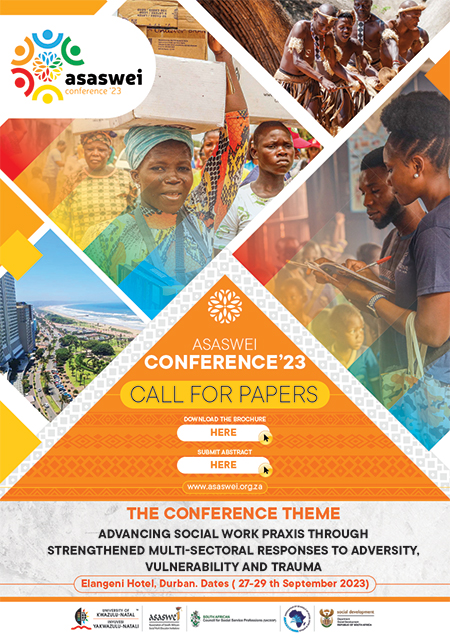The View page displays a submission's general information and data. Watch video
Submission information
Submission Number: 63
Submission ID: 63
Submission UUID: bcf24d81-ae47-4fe2-a550-65c7ad37059d
Submission URI: /2023/abstracts
Created: Mon, 05/29/2023 - 20:12
Completed: Mon, 05/29/2023 - 20:21
Changed: Tue, 08/01/2023 - 20:10
Remote IP address: 146.230.0.1
Submitted by: Anonymous
Language: English
Is draft: No
Current page: Complete
Webform: Abstract
Presenters
Abstract
Exploring the end-of-life care and re-integration of elderly offenders released on medical parole in eThekwini Municipality, South Africa.
THEME 2: Building sustainable, resilient, and self-reliant communities through indigenous modalities, inter-sectoral collaborations, and partnerships
SUB 2.1 Supporting families in mitigating vulnerabilities
Oral Presentation
The increasing number of seriously ill offenders re-entering society as elderly parolees after
incarceration has severe ramifications for post-incarceration service providers, especially
those providing social work programmes, monitoring, and supervision services in community
correctional centres (COMCOR). Elderly parolees experience several difficulties, including
maintaining their livelihoods, as they are well past work age and often lack family
members to assist them after their release from incarceration. Often, post-incarceration social
work programmes do not prioritise the needs of elderly parolees during service delivery, further
straining the transition process of elderly parolees released from custody. The study aims to
explore the experiences of caregivers and correctional service providers during the
reintegration process of elderly offenders released on medical parole after incarceration.
The study will utilise qualitative methods to explore the perceptions and experiences of elderly
parolees and correctional service providers in the Department of Correctional Services. The
study was situated in Durban Community Corrections (COMCOR), a reintegration centre
under the Durban Management Area in the KwaZulu-Natal Province. The sample comprised
fifteen (n=15) caregivers and ten (n=10) correctional social workers responsible for rendering
social work programmes.
incarceration has severe ramifications for post-incarceration service providers, especially
those providing social work programmes, monitoring, and supervision services in community
correctional centres (COMCOR). Elderly parolees experience several difficulties, including
maintaining their livelihoods, as they are well past work age and often lack family
members to assist them after their release from incarceration. Often, post-incarceration social
work programmes do not prioritise the needs of elderly parolees during service delivery, further
straining the transition process of elderly parolees released from custody. The study aims to
explore the experiences of caregivers and correctional service providers during the
reintegration process of elderly offenders released on medical parole after incarceration.
The study will utilise qualitative methods to explore the perceptions and experiences of elderly
parolees and correctional service providers in the Department of Correctional Services. The
study was situated in Durban Community Corrections (COMCOR), a reintegration centre
under the Durban Management Area in the KwaZulu-Natal Province. The sample comprised
fifteen (n=15) caregivers and ten (n=10) correctional social workers responsible for rendering
social work programmes.
Reviewer ONE Feedback
Dr
Nkosiyazi
Dube
Yes
Empirical Research
Accepted
Reviewer TWO Feedback
Prof
Veonna
Goliath
Yes
Empirical Research
Accepted

